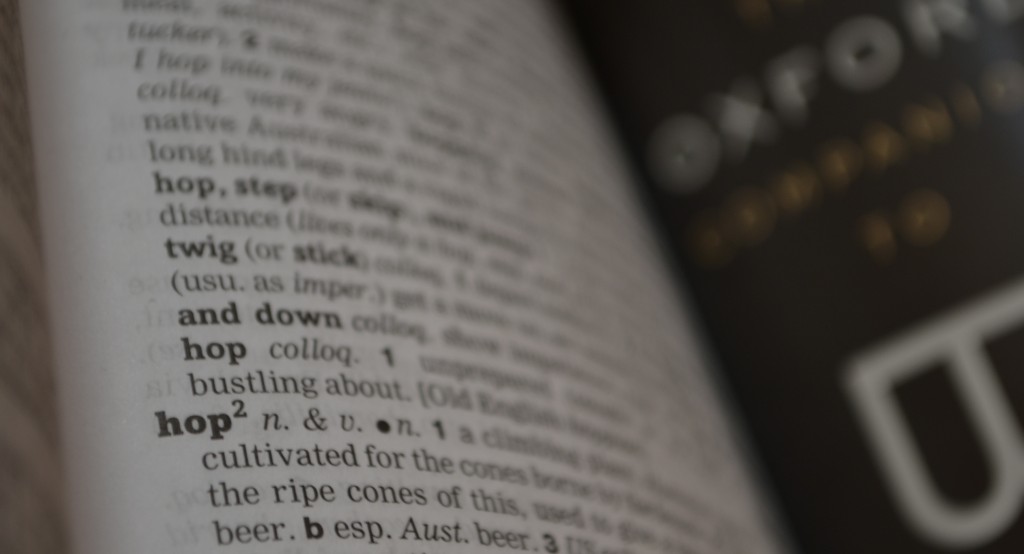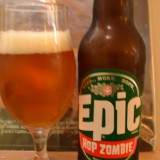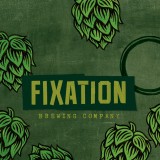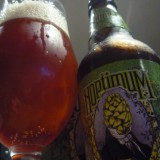
I’m the first to admit I have a limited understanding of grammar and I’ve always just gone with what sounds best and hoped that it was right. Given I’ve come this far without getting bogged down in all the past-particple and third-person-plural-pronoun technicalities, I’ve never given it too much thought.
(I realise how far I’m opening myself up by attempting to discuss grammar with my rubbish understanding and low interest… but here we are. If you see any mistakes, just pretend they are a sly wink to the reader and I’m actually in on the joke 😉 )
However, recently a grammar issue has been bugging me. I have tried to resolve it on my own using the might of google but I still can’t get to the bottom of it. And the more I look at it, the more I think it may not be a grammar issue but rather a quirk of synonyms.
So can anyone tell me the deal with “hops” vs “hop”?
Over the years I’ve noticed many writers, journalists, editors and amateur reviewers talk about “hops bitterness” or “hops characters” and it never sat right with me.
My understanding is, if you are putting more than one hop in your beer then you are adding “hops”. Once in the beer the results are “hop bitterness” and “hop aromas” (etc) because at this point it’s an uncountable noun. The same as if you use berries in a smoothie; it has “berry” flavours, rather than “berries flavour(s)”.
Taking the hop/hops/uncountable noun situation into consideration I have to assume that people using it in this way are using “hops” as the singular, rather than a plural of hop.
I’ve seen the plural as singular usage at reasonable regularity over the years and have even been on the end of an editor determined change every instance of “hop flavours” to “hops flavours” or “hop growing regions” to “hops growing regions”.
To try work out where/when/how hops became an acceptable synonym of hop I consulted dictionaries on and offline, beer history and brewing books, and did a lot more googling. I even suspected it may have stemmed from the initial Dutch or German translations and their grammar rules (hoppe/hopfen respectively, which is where we took the word from in English) but trying to work out Dutch or German grammar when I have limited understanding of English grammar was obviously a fools errand. Other than this definition online I couldn’t find anything that listed “hops” as an acceptable singular version.
With the high rate of pedantry, geekery and outstanding intelligence in the beer industry I’m hoping a reader can shed some light on all of this for me instead. Any thoughts?
(note: I fully accept I’m a pedant and a geek in a number of ways. I use those terms affectionally in this case, rather than combatively).




The Oxford dictionary – which is our newspaper’s dictionary of choice – says this:
Hop: 1. a climbing plant, Humulus lupulus, cultivated for the cones borne by the female. 2. [in pl.] a. the ripe cones of this, used to give a bitter flavour to beer.
For me, I hate the phrase “hops character” and I think it’s actually wrong. You can say you’re adding hops to a beer because then you’re referring to the actual volume of an ingredient being added. But, if you’re going to describe the effect they have on the beer then it’s a “hop character”, because you’re not using the word to describe volume any more, merely the presence of the hops.
Similarly, you can add two different malts to a beer, but you wouldn’t say the beer has a “malts character”.
Botanically, “hops” is the name of a vine; thus the editorial insistence to which you refer. As a noun “hops” does appear to be plural, but appearances can be deceiving. It is actually singular.